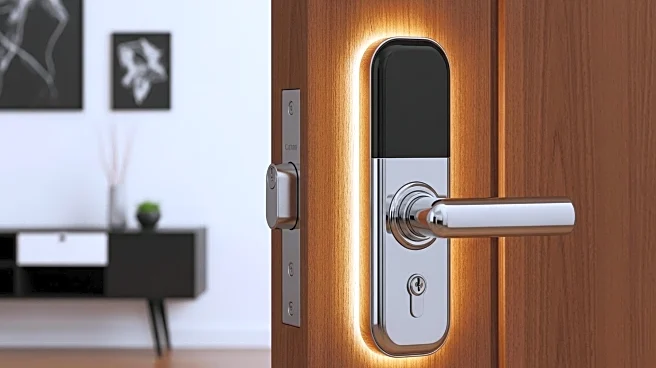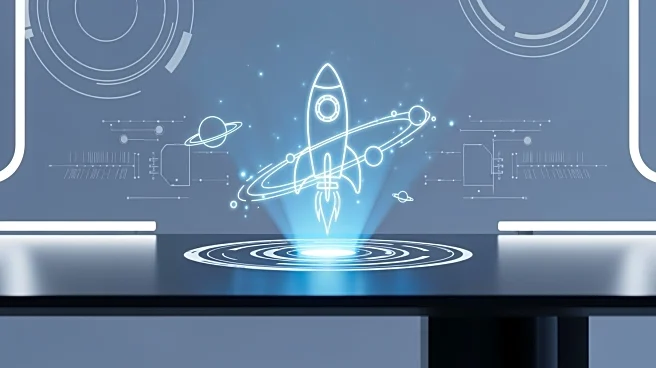What's Happening?
Smart locks are becoming a pivotal component in home automation systems, offering enhanced security and convenience. These devices can be programmed to lock or unlock at specific times, such as sunset or when school buses arrive, integrating seamlessly with daily routines. Smart locks often work in conjunction with smart lights, triggering illumination when a door is unlocked, which is particularly useful during seasons with limited daylight. Compatibility with Google Assistant and Google Home allows users to control smart locks via voice commands or through an app, making them versatile and user-friendly. The integration of smart locks into home automation systems reflects a growing trend towards interconnected smart home devices, providing users with greater control over their home environment.
Why It's Important?
The integration of smart locks into home automation systems represents a significant advancement in home security and convenience. By allowing users to control locks remotely and automate their operation, smart locks enhance the safety of homes while simplifying access management. This technology is particularly beneficial for families, as it can be programmed to accommodate daily schedules, such as unlocking when children return from school. The compatibility with voice assistants like Google Assistant further streamlines the user experience, making smart locks accessible to a broader audience. As smart home technology continues to evolve, smart locks are likely to become a standard feature, influencing the way people secure and interact with their homes.
What's Next?
The future of smart locks in home automation is likely to see further integration with other smart home devices and systems. As technology advances, smart locks may offer more sophisticated features, such as enhanced biometric security options and improved compatibility with various home automation platforms. The development of new communication protocols, such as Thread and UWB, could also enhance the reliability and functionality of smart locks. Additionally, as consumer demand for smart home technology grows, manufacturers may focus on creating more affordable and user-friendly smart lock solutions, expanding their accessibility to a wider market.
Beyond the Headlines
The rise of smart locks in home automation raises important considerations regarding privacy and data security. As these devices become more interconnected, ensuring the protection of user data and preventing unauthorized access will be crucial. Manufacturers and developers will need to address these concerns by implementing robust security measures and educating consumers on best practices for securing their smart home systems. Furthermore, the widespread adoption of smart locks may influence cultural attitudes towards home security, shifting the focus from traditional methods to more technologically advanced solutions.








